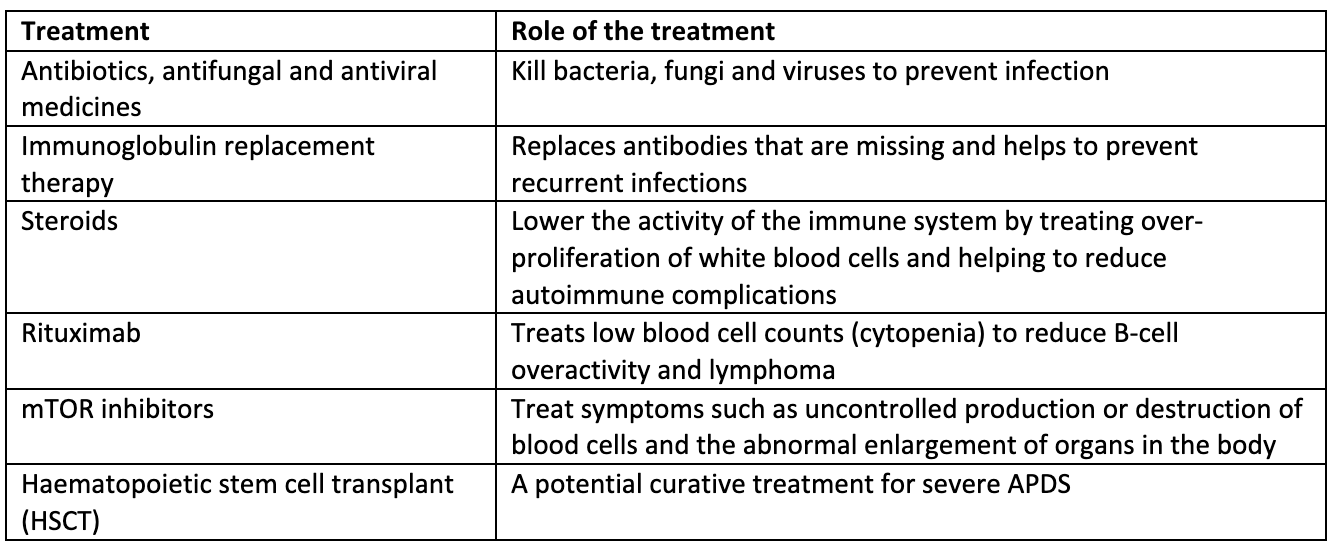Summary
Activated PI3K delta syndrome (APDS) is a rare primary immunodeficiency. About 30–40 people in the UK are known to be affected by the condition.
First discovered in 2013, APDS is an inherited disorder that affects both males and females. Prior to the discovery of APDS, patients may have been given a diagnosis of Common Variable Immunodeficiency (CVID).
People with APDS are unable to fight infections because their immune system does not work properly. In APDS, the white blood cells, particularly those called B-cells and T-cells, are abnormal and incapable of handling infections properly. They can’t recognise and attack bacteria and viruses to prevent infection.
Causes of APDS
APDS is caused by changes in the genes (either the PIK3CD or PIK3R1 gene) that control the production of an enzyme called phosphoinositide 3-kinase delta (PI3K delta). This enzyme is important for the normal development and division (proliferation) of B-cells and T-cells.
Two types of APDS have been identified. People who have genetic changes in the PIK3CD gene are referred to as having APDS1. People with genetic changes in the PIK3R1 gene are known as having APDS2.
The genetic changes, or variants, found in either the PIK3CD or PIK3R1 gene lead to the enzyme PI3K delta being more active than normal (overactive). Unfortunately, this overactivity means that the development and control of B-cells and T-cells is abnormal, so their ability to fight off infections is reduced.






